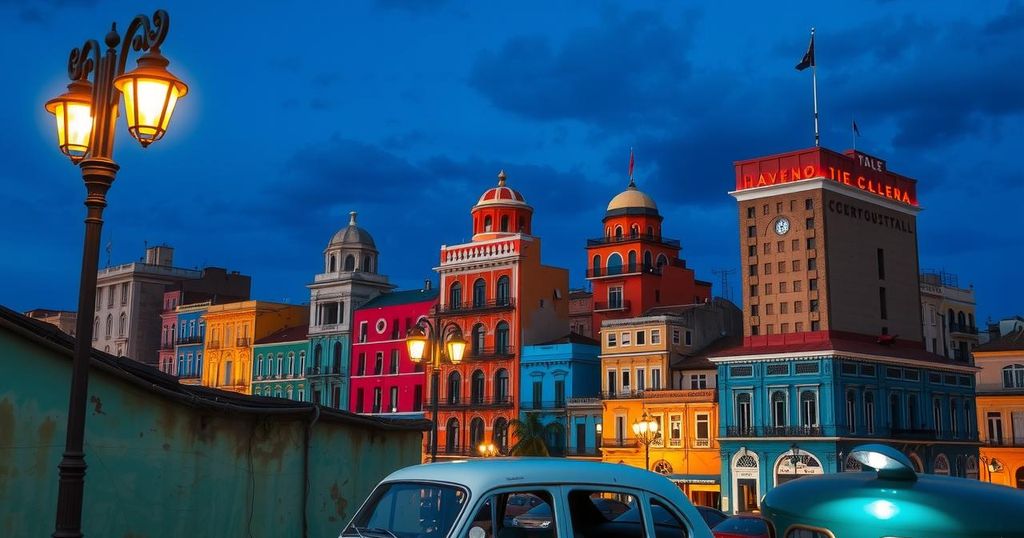Cuba Restores Power to Havana Following Significant Blackout

Cuba has restored power to much of Havana after a significant outage that affected 10 million people. Key oil-fired plants resumed operations, yet electricity generation remains inadequate. The energy crisis is exacerbated by historical U.S. sanctions, with the government aiming to develop renewable energy solutions.
Cuba has reconnected its national electrical grid, successfully restoring power to the majority of Havana by late Sunday evening, according to energy officials. This restoration occurred nearly two days after a widespread island power outage left 10 million residents without electricity.
Havana’s electric company reported that around two-thirds of its clients had their power restored as of late Sunday, with expectations of further improvements overnight. Residents across the city expressed joy as lights began to flicker back on after enduring two days of darkness.
The outage occurred due to a transmission line failure at a Havana substation, triggering a total shutdown of power generation across the island. The blackout greatly affected Havana, a densely populated area and a pivotal tourism hub, resulting in paralyzed commerce, closed restaurants, and non-functional streetlights.
The grid operator announced that the two largest oil-fired power plants, Felton and Antonio Guiteras, were back online and generating electricity by late Sunday, marking a significant milestone toward restoring power across Cuba. Electricity also reached the westernmost province of Pinar del Rio just before dark on the same day.
This grid failure represents the fourth nationwide blackout since October, exacerbated by diminishing oil imports from Venezuela, Russia, and Mexico, which have crippled the aging infrastructure. Prior to this incident, many Cubans had already been experiencing up to 20 hours of daily blackouts.
Despite the progress in restoring electricity, officials indicated that generation levels were only at one-third of the typical daily demand, leaving numerous residents still without power. Consequently, schools in Pinar del Río, Artemisa, and Mayabeque provinces will remain closed until Tuesday to ensure suitable conditions for students.
The Cuban government attributes the ongoing energy crisis to a U.S. trade embargo established during the Cold War and renewed sanctions imposed by former President Donald Trump. Consequently, the government is pursuing the development of large solar farms with support from China to reduce reliance on outdated oil-fired power generation.
In summary, Cuba has largely restored power to Havana following a significant outage that affected 10 million inhabitants. Key oil-fired power plants resumed operations, although the overall electricity generation still lags behind typical demand. The ongoing energy crisis is linked to historical U.S. sanctions, prompting the government to explore alternative energy sources. This incident highlights the critical need for upgrades to Cuba’s aging power infrastructure.
Original Source: gazette.com






